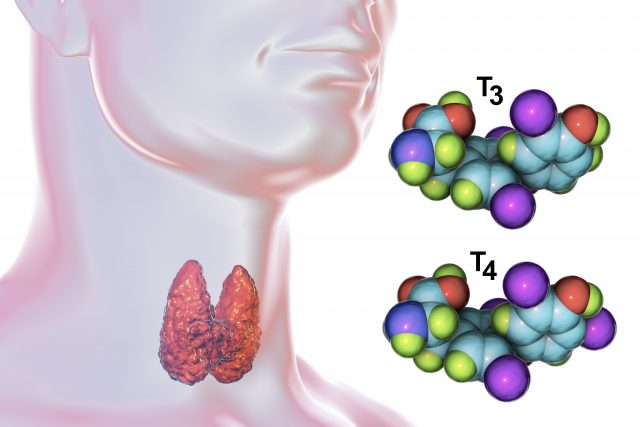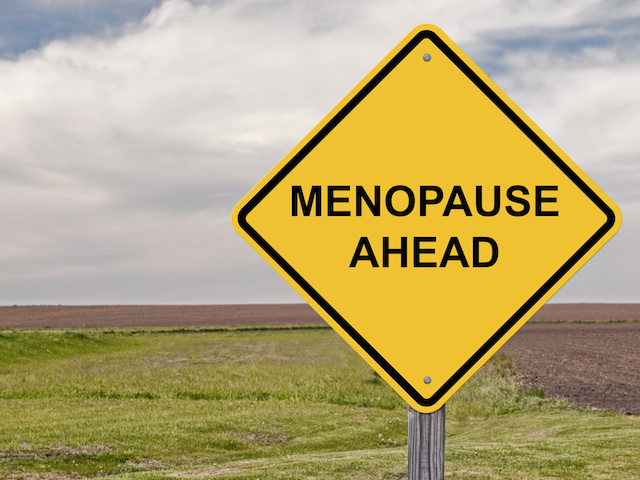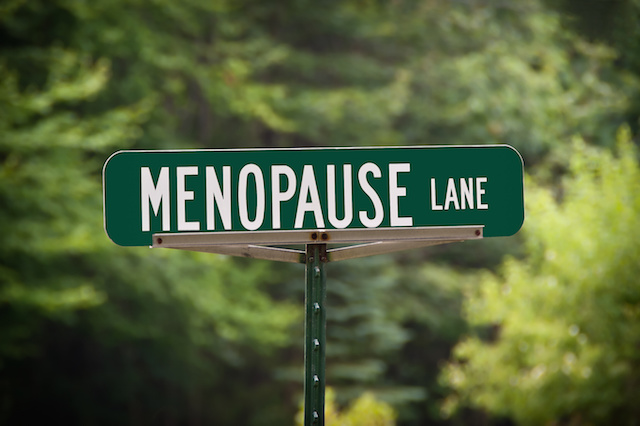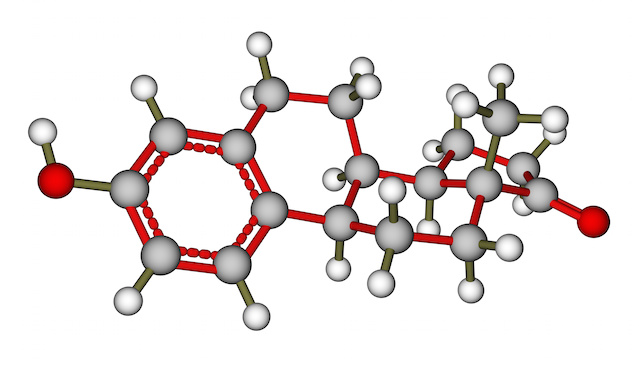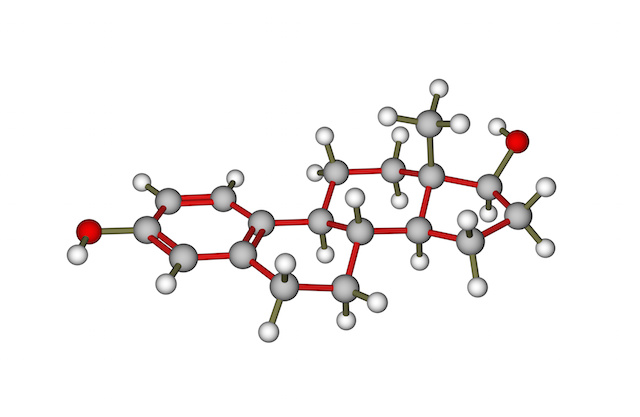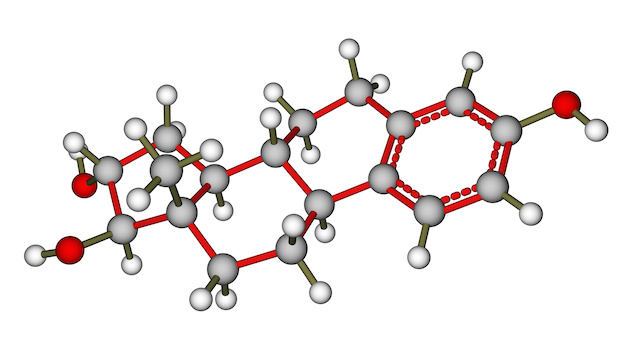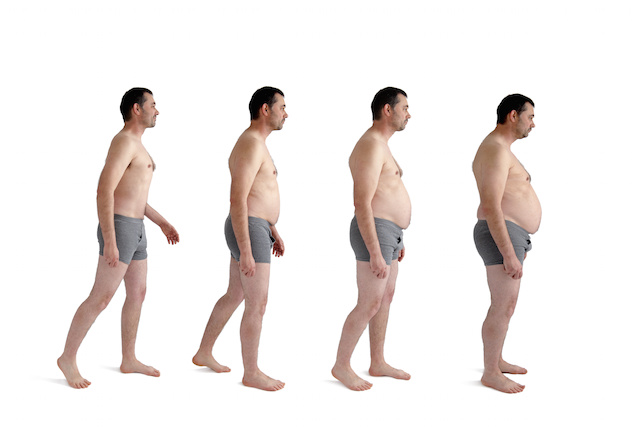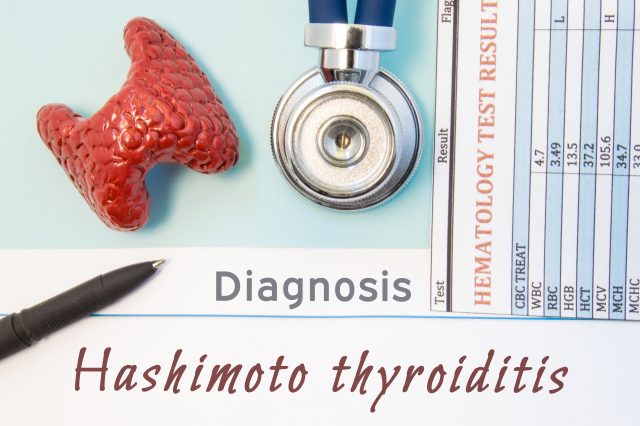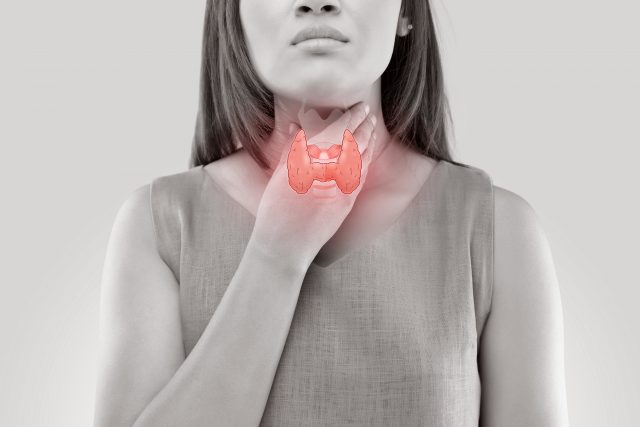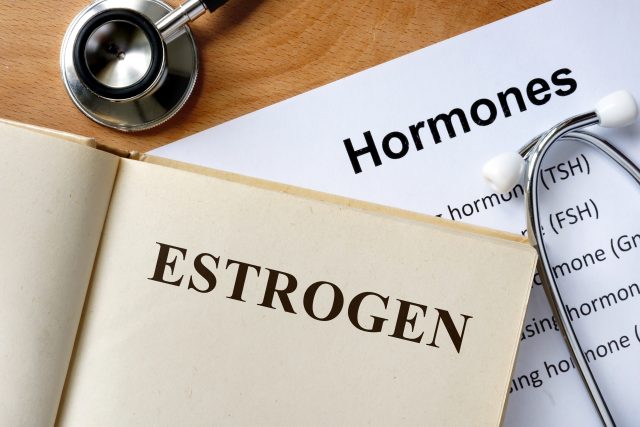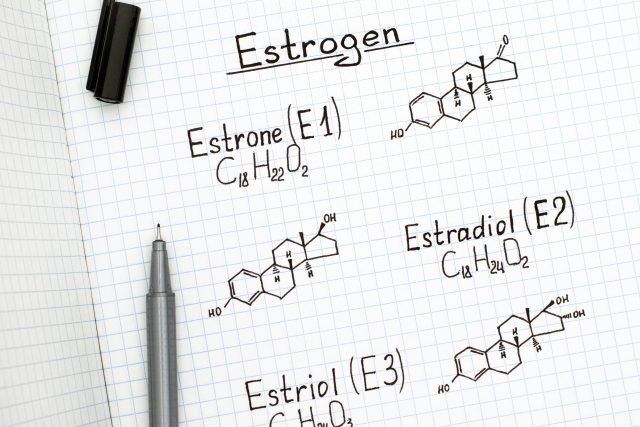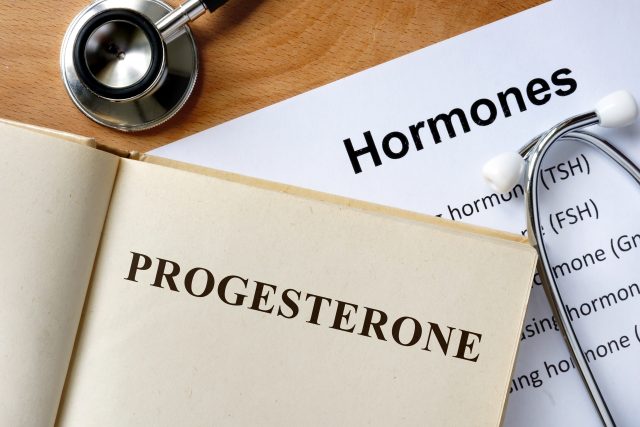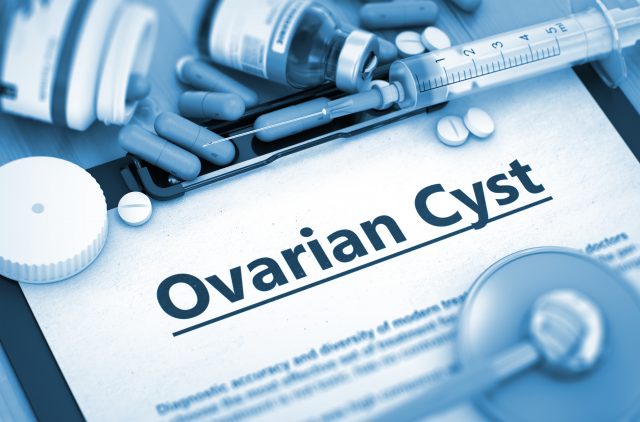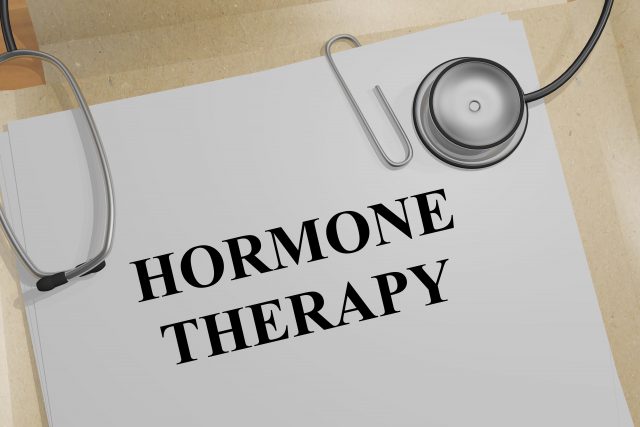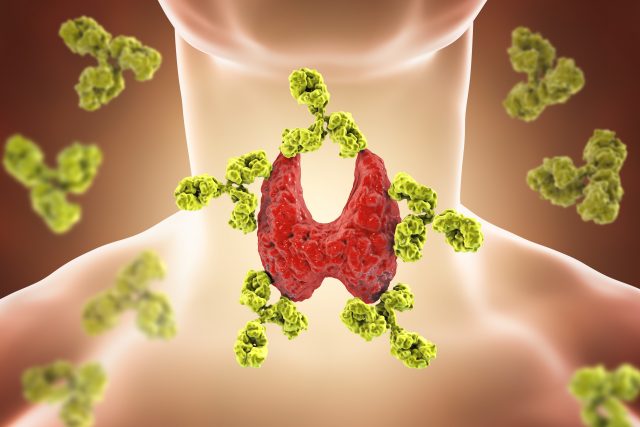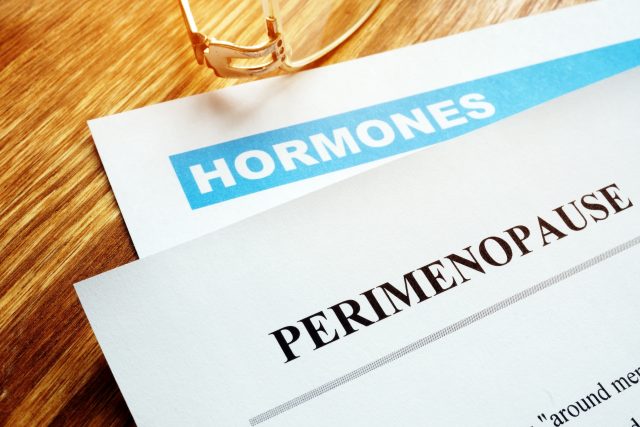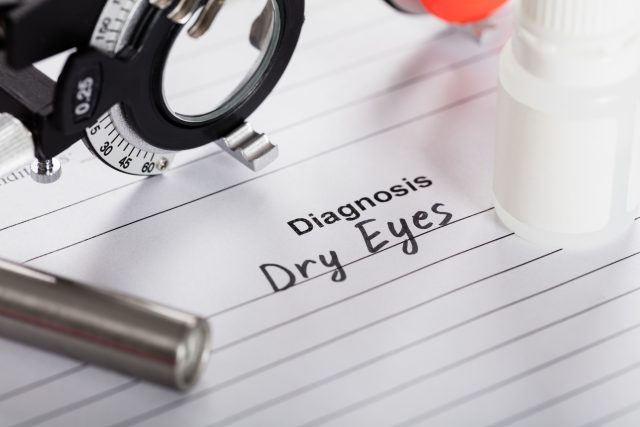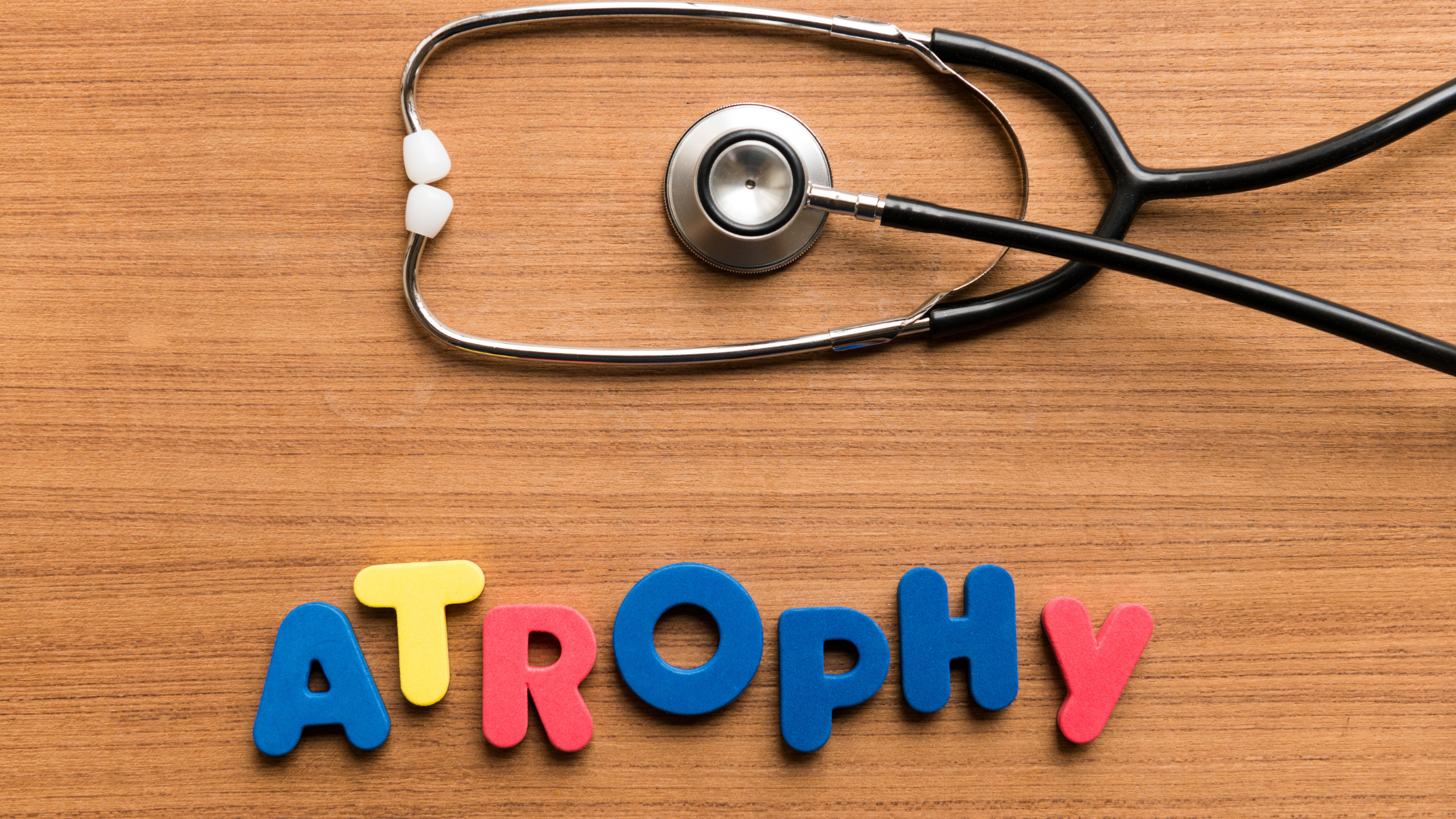What Does Low T3 Levels Mean? – Reader Questions
Molecules of thyroid hormones T3 and T4. Triiodothyronine and thyroxine, 3D illustration
One of our most popular podcasts, ‘Do you have low T3’ received a lot of listener questions. In this article, I would like to answer some listener questions regarding their concerns about low T3 levels.
Just a little background, I promise not to bore you with too much physiology. The thyroid gland mainly produces T4 hormone. T4 is a very stable molecule with a long half-life, close to 7 days. T4 does not have a lot of activity in the body, but it will travel in the body and converts to T3.
Triiodothyronine (T3) is the active form of thyroid hormone. Mainly the liver and to a lesser extent the colon and peripheral tissues will convert T4 to T3. Many people complain of low thyroid symptoms but their “thyroid labs” are normal. In this case, it could be a low T3 level that is causing their low thyroid symptoms. In this article, I want to answer some listener questions about T3 levels and thyroid that I think will apply to many of you reading this.
Question from Raphy:
What does it mean when T3 is low and everything else normal?
Dear Raphy,
Thank you for your question. As I have mentioned above the T4 will convert to T3. 60% of the conversion occurs in the liver with 20% in the colon and 20% in the peripheral tissues. There are a few reasons that the T4 may not be converting to T3 creating a low T3 level.
1. One of the most common reasons for decreased conversion is dietary. Reducing calories, going long hours without eating in the day will create low levels of T3. When there is a lack of food, the body senses it is in a starving state. To try and preserve body mass and reduce the metabolism, you will see a drop in the free T3 levels. This is one of the reasons that when a person goes on a caloric restriction diet there eventually is a plateau in weight loss if not rebound weight gain.
2. Another reason for low T3 levels can occur from estrogen therapy. Any type of estrogen hormone therapy can drop T3 levels slightly. When we treat a woman with bioidentical hormone replacement, we always test their free T3 levels several weeks later to make sure the estrogen did not drop their free T3 levels.
3. Taking T4 monotherapy can reduce the conversion of T4 to T3. The medication Synthroid or levothyroxine is used for low thyroid/hypothyroidism and is a form of T4 only. You will see when taking a T4 only therapy for hypothyroidism can often show lower T3 levels. As mentioned above T4 is supposed to convert to T3. When given T4 monotherapy you will often see the T4 will either pool and not convert to Free T3. Or the T4 will convert to reverse T3 (RT3) instead of free T3. Usually, it is a good idea to test a person on T4 monotherapy for their RT3 as well as free T3 levels.
4. As mentioned the liver is the primary source of conversion (T4 to T3). If a person has a sluggish liver, inflamed liver, elevated liver enzymes or a fatty liver can reduce the free T3 levels. Taking supplements that are for liver health can help the conversion of T4 to T3. Also, lifestyle changes that put an extra burden on the liver can help the T3 levels. Reducing alcohol, caffeine sources, sugar, high fructose corn syrup, medication can all have an effect on liver health.
Also, the microbiome in the colon helps conversion of T4 to T3. Not as much as the liver (60%) but the microbiome represents 20% of the conversion. Make sure there is no constipation or diarrhea can help the conversion. Working on improving the gut microbiome can also help the conversion. Such as taking a probiotic and dietary enriched with fibrous foods.
Question from Ben:
Since this article mentions heavy periods is it referring just to women with low TSH and T3? I want to know more about Male TSH T3 and T4. Thanks.
Dear Ben,
Thank you for reaching out. We certainly do not want to forget about the fellows. Men also can have thyroid issues and low free t3 levels. While low levels of free T3 can create female hormonal imbalances, this too happens in men. Hypothyroidism in men can cause lower levels of testosterone.
Hypothyroidism can cause a lower sensitivity to LH luteinizing hormone. Luteinizing hormone (LH) is secreted from the brain, specifically the pituitary. LH will stimulate testosterone production in the testes. If there is a reduced sensitivity to LH, then testosterone level in men will be reduced.
Many men have hypothyroidism, subclinical hypothyroid and Hashimoto’s disease. Often it can be missed in men because there may be a different set of symptoms seen. In men, you do not see as much weight gain in hypothyroid as in women. Also, men with hypothyroid do not have constipation and slow digestive transit time that the women do.
Women will typically have female hormone imbalances, increases the risk of miscarriage and menstrual irregularities. Of course, you would not see this in men. Men usually do not have sleep issues that hypothyroid women have. Men usually sleep well but are fatigued during the day. While women will have trouble staying asleep and daytime fatigue. Men with low thyroid levels will have hair loss. But it is often missed because it is more common for benign hair loss in men.
Question from Jean:
I have low free t3, low free t4 and extremely low TSH, liver function is also poor, and I wonder if the 2 are related?
Dear Jean,
I mentioned above in Raphy’s question, the liver is responsible for 60% of the T4 to T3 conversion. If you have poor liver function, then yes you could have low T3 levels. Poor liver function can come from many things.
Overconsumption of alcohol, medications and certainly high fructose corn syrup can put a burden on the liver. Having elevated liver enzymes means you might have a burdened liver. Having a fatty liver such as NAFLD or NASH can reduce your T3 levels. NAFLD stands for Non-Alcoholic Fatty Liver Disease. And NASH stands for Non-Alcoholic Sterrohea Hepatitis.
Both contribute to poor liver function and will be discussed in other articles. I don’t have much of Jean’s background, so I am going to extrapolate a bit on her situation. As mentioned above, in a caloric restriction diet or not eating enough food will cause lower levels of T3. when the body thinks it is in a “starvation” state, it not only lowers free-t3, it also lowers the TSH.
The TSH stands for Thyroid Stimulating Hormone. It is a signal from the brain (pituitary) to monitor overall thyroid hormone in the body. In a perfect world, if the thyroid function is low, the TSH is high. Or if the thyroid is over-active, then the TSH is low. In Jean’s case, she has low levels of free -T3 and low TSH. At first thought, this does not make sense. When you see a low TSH and a low Free-T3 that usually means they are not eating enough or going long hours in the day without eating. So yes, I do think that Jean’s liver function may be impairing her thyroid levels. But these values could also mean she needs to eat a little more frequently in the day.
I would like to thank Raphy, Ben, and Jean for reaching out and asking questions and confiding their situations to us.
